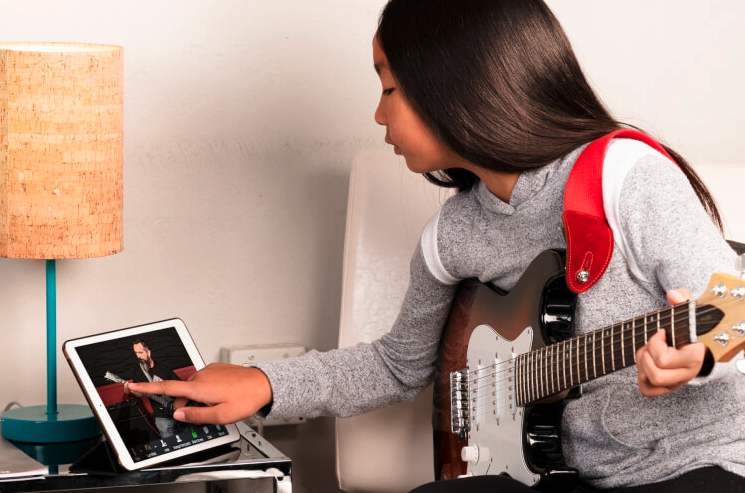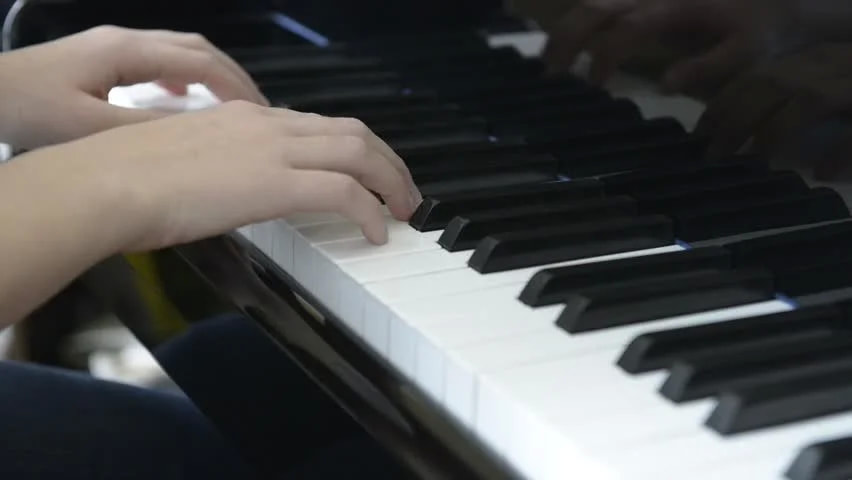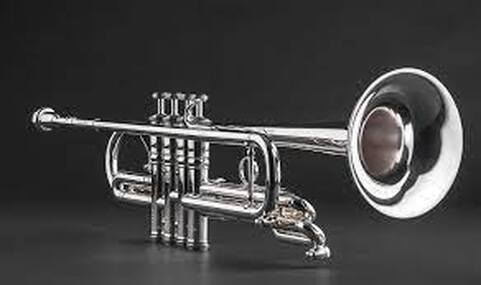|
I always advise parents to allow their children to take music lessons because of its numerous advantages. I love music and I know music has shaped my life in many ways. I developed a strong passion for music at an early age, and I followed my passion. Music made me who I am. From recording songs to selling cd's, and from performing my songs to winning awards, I can say I have been living a fulfilled life because of my passion for music. So, I can authoritatively say music brings out the best in kids and adults. Even if your child has little or no experience or he is not even interested in it, you need to enroll him for good music lessons. Also, music enhances kids’ ability to learn in formal classes too. It motivates children to dig deep and tap into their inner strength and skills. Music will make them hit a gear they never knew they had. Another reason to encourage your child to learn how to sing, how to compose songs, or how to play certain musical instruments is quick language development. Over the years, it has been established that music education promotes language development and it also makes people more social. Now that you know some benefits of music lessons, you may want to enroll your child for music lessons. It is better to choose a good service provider. Here are the qualities you should look for in music teachers/school. Conducive environment You need a music school with a conducive environment. When it comes to music lessons, the environment where it is done plays an important role in the effectiveness of the lesson. The environment should attract kids. For instance, there should be toys for kids and a lounging area for adults. State-of-the-art musical equipment Your child needs a music school that has numerous pieces of musical instruments. This will give her a variety of choices. Besides, there’s nothing wrong in learning how to play multiple instruments. Some musical artistes can play both keyboard and guitar very well. Multi-instrumentalists are usually more successful than artists that can play only one instrument. Experienced and qualified teachers Your level of success in anything depends on the experience and expertise of your teacher. So, if you want your child to get the best from his music lesson, you should enroll him in a school that has experienced music teachers. You need a school that has teachers that are good in singing, composing music, and playing different musical instruments. Flexible schedule How flexible is the schedule of the school? You would want to integrate the music lessons into your child’s academic routine. So, how about teachers that can come around early in the morning or during his break? Some musical schools are very flexible. If you're interested in taking music lessons on Zoom or In Person in Burbank, Glendale or North Hollywood, we have some of the best music lessons in Los Angeles. Our music instructors are picked by interviewing hundreds of music instructors and we have really high standards on both their teaching ability as well as their personality. If you'd like to talk to one of our instructors or set up a first lesson we have a guarantee that if you don't absolutely love your first lesson you don't have to pay for it. Please contact us at (818)902-1233 or on our website at https://www.losangelesmusicteachers.com/online-drum-lessons-in-burbank-ca.html
Learning to play the piano can look like a pretty big challenge to a beginner. You might be staring at your keyboard right now, wondering where to even start? But don’t let all those keys intimidate you! Making sense of the keyboard is actually quite simple, you just have to know what to look out for. Identifying Octaves The first thing we’ll do is break the piano down into more manageable chunks. If you look closely at the keyboard, you’ll see that there is actually a pattern to how the keys are laid out. They’re laid out in such a way that after 12 keys the notes repeat themselves. We call this sequence of 12 keys an Octave. A traditional 88 key piano can be split up into just 7 octaves. Learning to identify this octave pattern is crucial for finding your way around the keyboard. Finding Middle C Now that you know how to split your piano up into discrete octaves, finding specific notes is easy! Let’s start with the most important note on the piano, Middle C. How do we find it? Take a look at the black keys of the piano, and notice how there’s a pattern of black keys across the whole keyboard, alternating between groupings of three black keys and two black keys. To find any ‘C’ note, simply take that grouping of two black keys and play the white key just below the lowest black key. You can see this pattern across the whole keyboard, so if you want to find a ‘C’ note anywhere, all you have to do is find that grouping of two black keys! Middle C is the fourth ‘C’ note from the bottom of the piano. Take special note of it as it’ll be your home base for learning the entire instrument. Naming the Notes Knowing middle C is one thing, but what about all those other notes in the octave? These notes are all given letters as well. For now, just focus on the white keys. Walking up from middle C, the note order is D, E, F, G, A, B, and then the octave pattern repeats with C again. Number The Fingers In order to play the piano to the best of our ability, you need to be sure to play with the proper fingerings. The first step to proper fingerings is to number the fingers themselves. For both hands the fingerings go from #1 for thumbs to #5 for the pinky finger. Playing Scales Now that you know the numbers for your fingers and the names of the notes, you can apply your knowledge to play a C major scale. The C major scale consists of eight notes from C to the C in the octave above. This means that you’ll need to learn some special finger techniques to get your five fingers to play an eight note sequence fluidly. The fingering pattern in the right hand is 1, 2, 3, 1, 2, 3, 4, 5. Notice how there’s a fingering reset between the 3rd and 4th notes of the scale. In order to play this order of fingerings fluidly, you’ll need to master a technique called the thumbtuck. A thumbtuck involves curling your thumb under your hand in order to play reposition your hand and continue playing a phrase. Although it may seem simple, the thumbtuck is one of the most important skills in a pianist’s bag of tricks, so make sure you’re always aware of it during your practice sessions! When playing scales in the left hand, all the same rules apply, except our hands are mirrored. This means the fingering pattern is 5, 4, 3, 2, 1, 3, 2, 1. Keep an eye out for that fingertuck between notes 5 and 6. It’s a similar motion to the right hand, but this time your middle finger will cross over to continue playing the scale. Practicing scales is just one of the many ways you’ll build confidence and musicality as a piano player. When you’re practicing them make sure you’ve got your technique and fingerings consistently solid. Prioritizing good technique in your early days as a piano player will pay off HUGELY moving forward! If you're interested in taking piano, guitar or singing lessons on Zoom or In Person in Burbank, Glendale or North Hollywood, we have some of the best piano, guitar and singing lessons in Los Angeles. Our instructors are picked by interviewing hundreds of drum instructors and we have really high standards on both their teaching ability as well as their personality. If you'd like to talk to one of our instructors or set up a first lesson we have a guarantee that if you don't absolutely love your first lesson you don't have to pay for it. Please contact us at (818)902-1233 or on our website at https://www.losangelesmusicteachers.com/contact-us-for-info.html You have probably heard many times that the trumpet is one of the most difficult instruments to play. Maybe you play the saxophone and you’re wondering where the famous trumpet ego comes from, or maybe you’re thinking about learning the trumpet. Either way, there’s something to what people say about it, let’s learn why. The trumpet is considered a difficult instrument because the sound of the trumpet is reliant on the delicate embouchure. The brass embouchure, particularly the trumpet embouchure, must be capable of producing frequencies upwards of 1000 HZ. Who Makes The SoundMusic is practically the same as vibration. The way sound works is vibrating air (or another medium… bone-induction headphones prove that.). The vibration from an instrument vibrates the air which in turn vibrates our ear drum which in turn vibrates our inner ear’s cochlea which in turn excites nerves that our brain can understand. For a trumpet to make sound, the trumpet player’s lips must produce the vibration. It helps to understand the challenge here if we compare what is required of a trumpet player vs. other instruments.
Again, so what? Why are higher notes hard to play? As you play higher, the trumpet player has to buzz higher frequencies. To play High C, the trumpet player has to buzz around 1046 times per second! To be able to play this frequency takes an enormous amount of practice. In fact, culturally, being able to “hit the high notes” is a huge deal for many trumpet player. The embouchure is so complicated that there are entire books and theories written specifically for training an embouchure. Not all experts agree on the best system for developing an embouchure because there are so many complicating factors. Everybody’s mouth and lip configurations (shape of mouth, placement of teeth, etc) are different. Therefore, everyone’s embouchure and embouchure development is different. What further complicates matters is that many trumpet players in K-12 school programs do not get formal embouchure training, and so get bad habits. This can lead to several problems.
All this is to underscore that the trumpet embouchure is difficult and tricky enough to get the hang of that if you don’t learn decent enough technique you could struggle for months or even years with endurance, good tone, and range. Although it’s not unusual to learn to play around 15 notes for a beginner with 6 months, it can take much longer to play with good tone. Embouchure Shelf LifePerhaps one of the more unfortunate aspects of the embouchure is that if you don’t use it, you lose it. Very similar to athletic conditioning–advanced trumpet technique (or chops as they call them) will be lost quickly if you are not continuously practicing. Some experts experience a noticeable difference even after only a day or two of not practicing. But even with the trumpet being so difficult to learn, it is majorly worth it! Would recommend looking into finding a great teacher like ours to help you push past these obstacles and become an amazing Trumpet player. If you're interested in taking Trumpet lessons on Zoom or In Person in Burbank, Glendale or North Hollywood, we have some of the best Trumpet lessons in Los Angeles. Our Trumpet instructors are picked by interviewing hundreds of Trumpet instructors and we have really high standards on both their teaching ability as well as their personality. If you'd like to talk to one of our instructors or set up a first lesson we have a guarantee that if you don't absolutely love your first lesson you don't have to pay for it. Please contact us at (818)902-1233 or on our website at https://www.losangelesmusicteachers.com/contact-us-for-info.html
|
Archives
July 2024
Categories
All
|
|
Music Lessons Available on All Instruments:
Piano Lessons
Guitar Lessons Voice Lessons Drum Lessons Violin Lessons Cello Lessons Saxophone Lessons Jazz Improvisation Lessons Flute Lessons Clarinet Lessons Singing Lessons Acoustic & Elec Bass Songwriting & Production |
Contact Us Now
|
Website by Never Alone Business Services





 RSS Feed
RSS Feed



